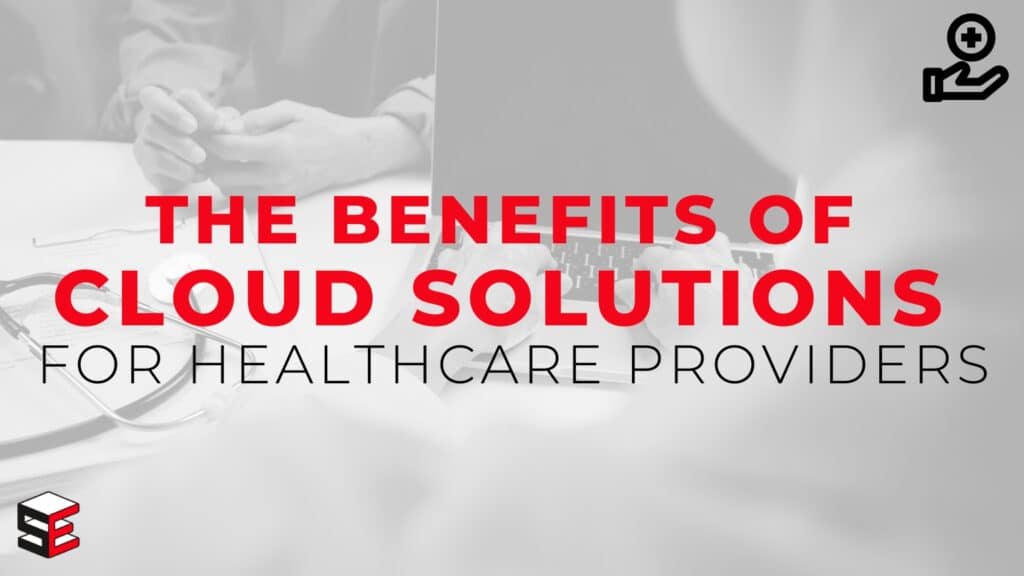As the healthcare industry continues to evolve, healthcare providers face increasing demands for efficient, cost-effective solutions that enhance care delivery while ensuring patient data is secure. One of the most transformative advancements in recent years has been the widespread adoption of cloud solutions. From streamlining operations to improving patient outcomes, cloud technology offers numerous benefits for healthcare providers of all sizes.
1. Enhanced Data Security
Patient data security is one of the most critical concerns for healthcare providers. With sensitive information such as medical histories, treatment plans, and test results, ensuring the safety and privacy of data is paramount. Cloud solutions provide robust security features, such as encryption, multi-factor authentication, and regular software updates, to safeguard data against breaches and cyber threats. Additionally, cloud service providers often comply with stringent regulatory standards like HIPAA (Health Insurance Portability and Accountability Act), ensuring that healthcare organizations are meeting legal requirements for patient data protection. This allows providers to focus on patient care rather than constantly worrying about data security.
2. Improved Collaboration and Accessibility
Cloud technology enables seamless collaboration between healthcare professionals, regardless of their physical location. With cloud-based systems, medical teams can access patient data, share notes, and collaborate on treatment plans in real time. This is especially valuable for healthcare providers who operate in multiple locations or need to consult with specialists in different areas. For patients, cloud-based solutions also mean easier access to their own medical records. With patient portals and mobile apps, individuals can securely view their health information, schedule appointments, and even communicate with their healthcare providers remotely. This enhances the overall patient experience and empowers patients to take a more active role in their healthcare journey.
3. Cost Efficiency
Healthcare providers are always looking for ways to reduce costs while maintaining high-quality care. Cloud solutions can significantly lower operational expenses by eliminating the need for expensive on-premises hardware and infrastructure. Instead of investing in servers, storage devices, and IT staff to maintain systems, healthcare organizations can pay for cloud services on a subscription basis, often with a pay-as-you-go model that scales with the organization’s needs. Cloud solutions also streamline administrative tasks, such as billing, scheduling, and patient management, leading to increased efficiency and reduced overhead. These cost savings can be reinvested into improving patient care or expanding services.
4. Scalability and Flexibility
The healthcare industry is constantly changing, and cloud solutions provide the flexibility needed to adapt quickly. Whether you’re expanding your practice, opening a new location, or adding new services, cloud technology can easily scale to accommodate growing demands. Cloud solutions offer the ability to increase storage, processing power, and system capabilities without the need for significant upfront investment or lengthy installation processes. This scalability also ensures that healthcare organizations can respond quickly to unexpected events, such as surges in patient volumes or emergency situations, by rapidly adjusting their cloud resources to meet increased demand.
5. Improved Disaster Recovery
Healthcare organizations must be prepared for unforeseen circumstances, such as natural disasters, cyberattacks, or system failures, that could lead to data loss or interruptions in service. Cloud-based solutions offer robust disaster recovery features, with data backed up regularly in multiple secure locations. In the event of a system failure, cloud solutions ensure that data can be quickly restored, minimizing downtime and disruption to patient care. This level of reliability provides peace of mind for healthcare providers, knowing that their critical data is safe and accessible even in the most challenging situations.
6. Enhanced Patient Care
Ultimately, the goal of adopting cloud solutions is to improve patient care. Cloud-based tools enable healthcare providers to access up-to-date patient information, track medical history, and coordinate care more efficiently. By having a complete picture of a patient’s health in real time, providers can make more informed decisions, leading to better treatment outcomes. Cloud technology also supports telemedicine, which has seen tremendous growth in recent years. Telehealth platforms allow healthcare providers to conduct virtual consultations, reaching patients who may not otherwise have access to care due to geographical, mobility, or time constraints. This not only improves accessibility but also enhances patient satisfaction and overall health outcomes.
7. Streamlined Compliance and Reporting
Healthcare providers must comply with a wide range of regulations, from patient privacy laws to billing standards. Cloud solutions simplify compliance by automating many processes related to reporting, auditing, and tracking compliance metrics. Providers can easily generate reports, monitor performance, and ensure they meet regulatory requirements without the need for extensive manual work. Furthermore, because cloud systems are regularly updated, they ensure that healthcare organizations stay up-to-date with evolving laws and regulations, reducing the risk of costly compliance issues.
The adoption of cloud solutions is revolutionizing healthcare by offering benefits that span security, collaboration, cost efficiency, scalability, disaster recovery, patient care, and regulatory compliance. For healthcare providers, embracing cloud technology is no longer a luxury—it’s a necessity. By adopting the cloud, healthcare organizations can focus more on providing high-quality care and less on managing complex IT systems, ultimately improving both the patient and provider experience.

